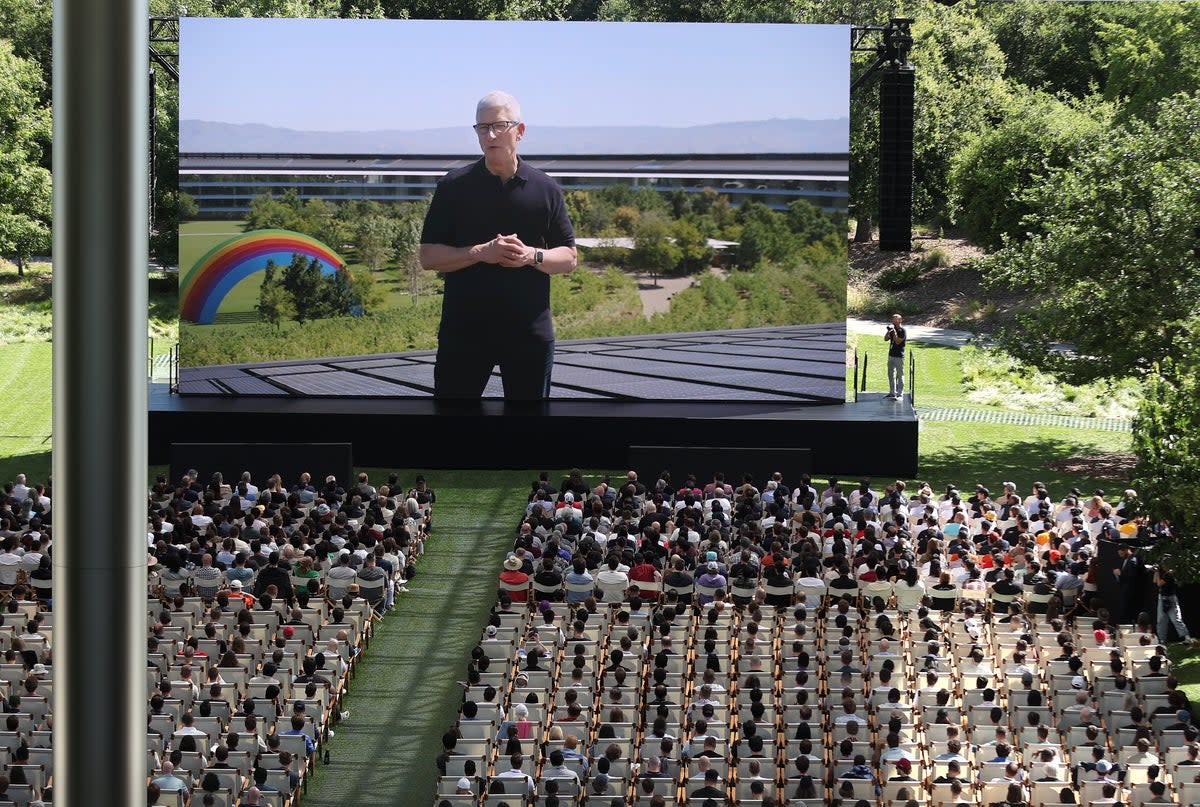‘Apple Intelligence’ is the latest step in iPhone maker’s complicated relationship with ‘AI’

Last month, when Google held the I/O event during which it revealed the products it has coming next year, it wrapped up with a joke about how many times it had said "AI". A huge board next to chief executive Sundar Pichai proclaimed that the "AI count" was 121, which worked out at more than once per minute.
When Apple came to its own version of that event – the Worldwide Developers Conference, or WWDC, held this week – its count was a lot lower. Even though it had been billed as Apple's big moment to reveal its work on AI, it seemed as if it didn't want to say it.
Apple has long been resistant about using the word AI, or artificial intelligence. At last year's WWDC, when the post-ChatGPT AI hype was in full swing, it conspicuously refused to use the word. Instead, it favoured the (more specific) term "machine learning", or just explaining what its new features would do, rather than how they would do it.
This time around, Apple couldn't not say AI and artificial intelligence. It has spent the last year been hectored by investors, users and commentators who say it is in danger of falling behind and losing ground to competitors such as Google, and if it had refused to say the word again then it risked the wrath of the stock market and tech press, if not its customers.
It did still sort of refuse to say it. It remade the initials of AI into "Apple Intelligence", it continued to say machine learning when it could, and at times it revealed features that must be powered by those technologies but just introduced them as being clever and proactive.
Part of that may be that Apple feels a little irritated by the common suggestion that it has missed out on AI. At the event, Apple software boss Craig Federighi said that there are already 200 different machine learning models running on the iPhone; its hardware has been built with devoted AI processors long before that was much of a selling point.
It has seemed at times to have marketed its features too well. As AI has moved to become a marketing term, it missed out – though it has now feels as if it has moved back towards being a turn-off, it might be glad of that fact.
At last year’s WWDC, when the clamour for Apple to announce its own AI tools was already loud, the hype around the technology was unmissable. But this year’s conference was preceded by major AI slip-ups by Microsoft, OpenAI and Google, and a technology that was once usually criticised for being too powerful has come to seem a little tawdry.
At times, Apple seemed to set itself explicitly against the AI industry. It described the new features as "AI for the rest of us" – a reference to the tagline for the original Macintosh in 1984, which called it the "computer for the rest of us". As it did then, Apple hopes to take a technology that seems distant, difficult and dangerous and make it useful to the world.
It is notable that even at its big AI event, Apple did not choose to turn AI into a product. It has spent the last few years pushing heavily into services, and artificial intelligence does require servers and other costs, so Apple could easily have said that it needed a monthly subscription. (It will make money from it, however; Apple Intelligence requires the A17 Pro chip that is only found in its most expensive iPhone 15 Pro and Pro Max.)
That might reflect another separation from the rest of the AI industry: Apple could be concerned that people, inspired by either apathy or antipathy, will not pay up for those features. Instead, Apple is turning them into things that people will pay for – useful tools, rather than intriguing technology.
It also opted to allow other companies to provide the more speculative, less useful parts of AI technology, announcing that OpenAI’s ChatGPT would be integrated into the operating system. It chose that because it is the “best” of the large language models available today, but did not rule out further integrations, such as Google’s Gemini or even models aimed at specific uses, such as one specifically made out to help out with medical questions.
Apple never really wanted to be an AI company; it just wanted to be a company that used AI. Even still, it feels as if it is being forced to say words that it doesn't really want to.
Over the last couple of years, that has meant that it has been attacked as being behind the state of the art. It used this week to show that it wasn't behind the AI industry – but it did show that it wants to be a little outside of it.
A version of this article originally appeared in the IndyTech email newsletter. You can sign up here.


